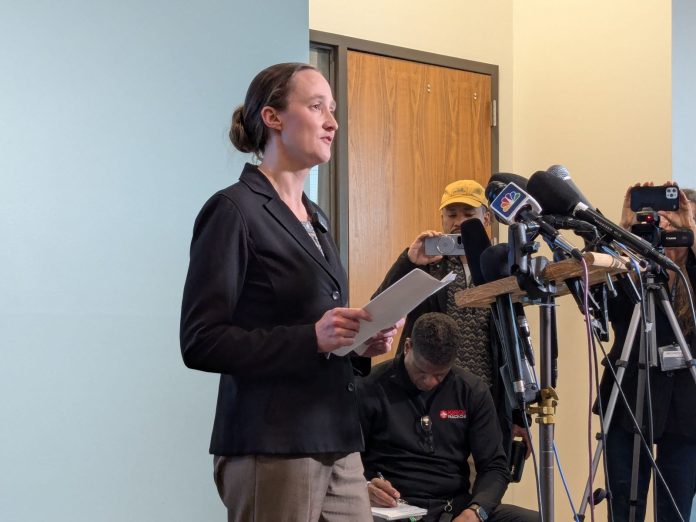
On Wednesday, Seattle Mayor-Elect Katie Wilson announced the leaders of her transition team, who will aid her in selecting her cabinet and identifying the departmental leadership shakeups to carry out. To lead the transition, Wilson tapped Andrés Mantilla of the consulting firm Uncommon Bridges and announced four co-chairs who will all lay the groundwork ahead of her official swearing-in in early January.
- Karen Estevenin, Executive Director of PROTEC17 — a labor union representing more than 10,000 public-sector workers across Washington and Oregon.
- Tiffani McCoy, Co-Executive Director and Co-Founder of House Our Neighbors, a nonprofit which advocates for social housing, climate action and connected communities.
- Quynh Pham, Executive Director of Friends of Little Saigon (FLS), a community development organization dedicated to preserving and enhancing Little Saigon’s cultural, economic, and historical vitality.
- Brian Surratt, CEO of Greater Seattle Partners, “a private/public partnership focused on attracting new business, promoting international trade, and growing our major industries for the region.” Previously, Surratt was the Director of the City of Seattle’s Office of Economic Development, “where he oversaw small business, workforce, key industry, foreign-direct investment, and anti-displacement programs and strategies, and negotiated the city’s $1.2 billion development agreement to build Climate Pledge Arena.”
Like Surratt, Mantilla also brings experience leading a City department. Mayor Jenny Durkan appointed Mantilla to lead the Department of Neighborhoods in 2018, after a decade serving in various City government roles since first coming on board as a community outreach gig with the Greg Nickels administration in 2008. Additionally, Mantilla serves on the Board of Directors at Bellwether Housing and has “directed projects focused on homelessness policy development,” which was a major focus area for Wilson in her campaign.

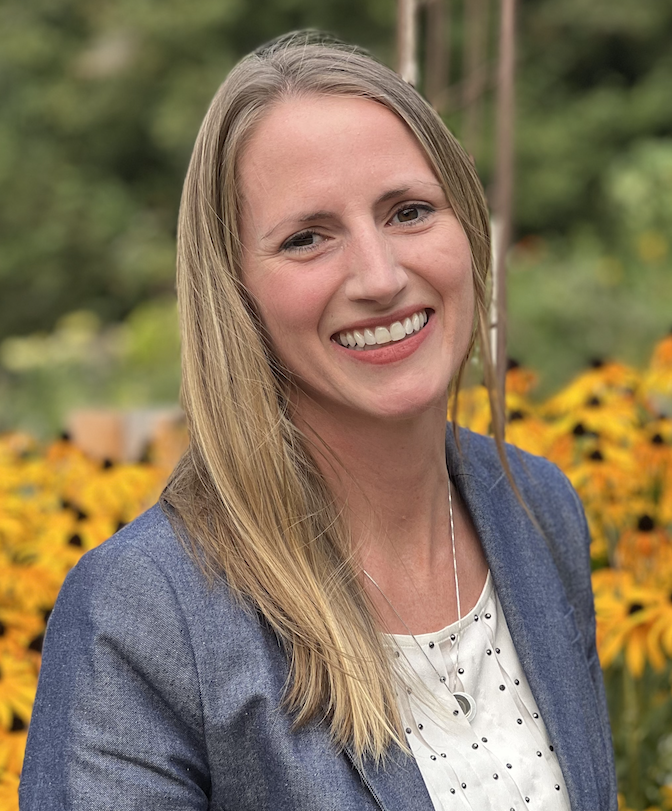
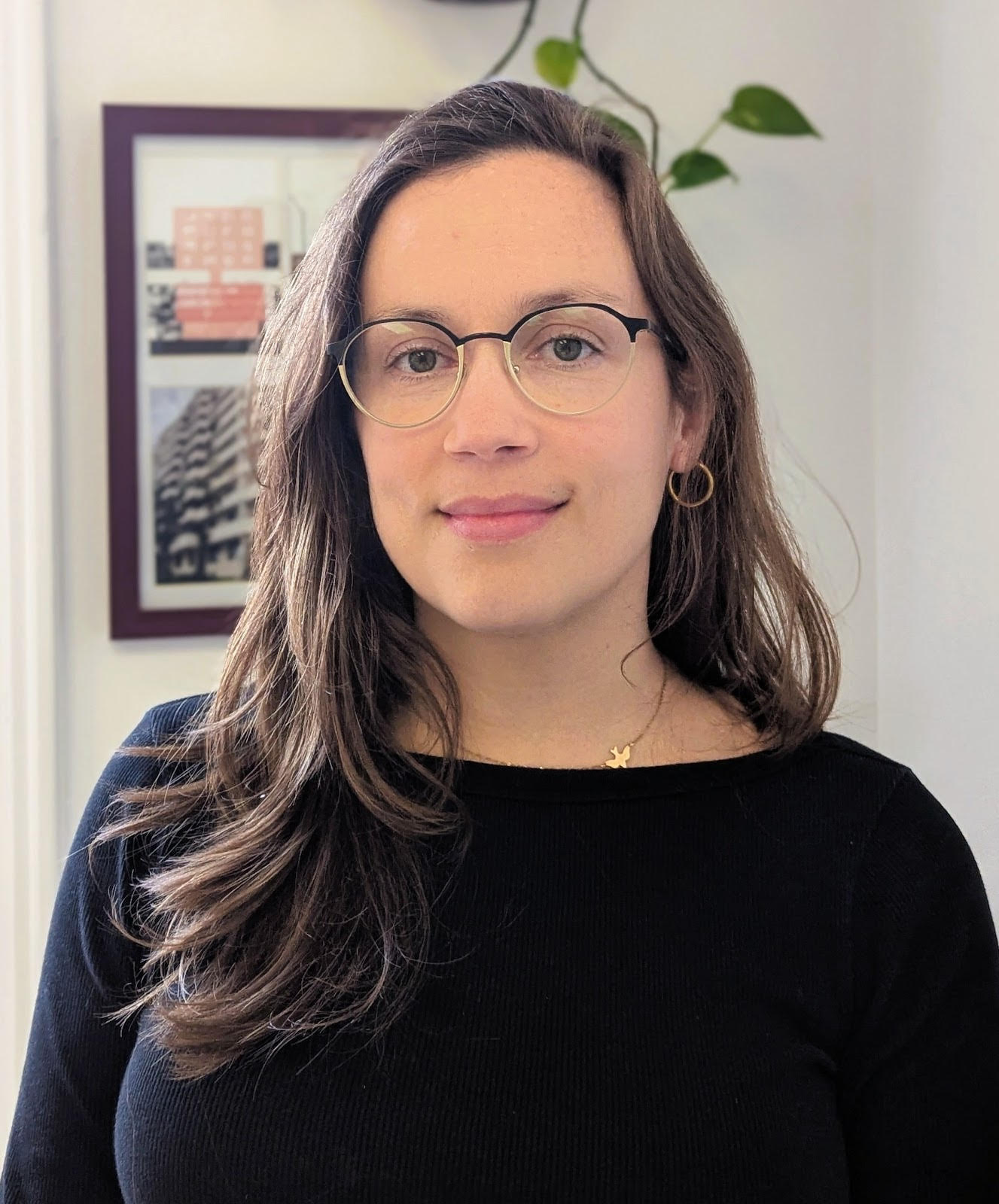
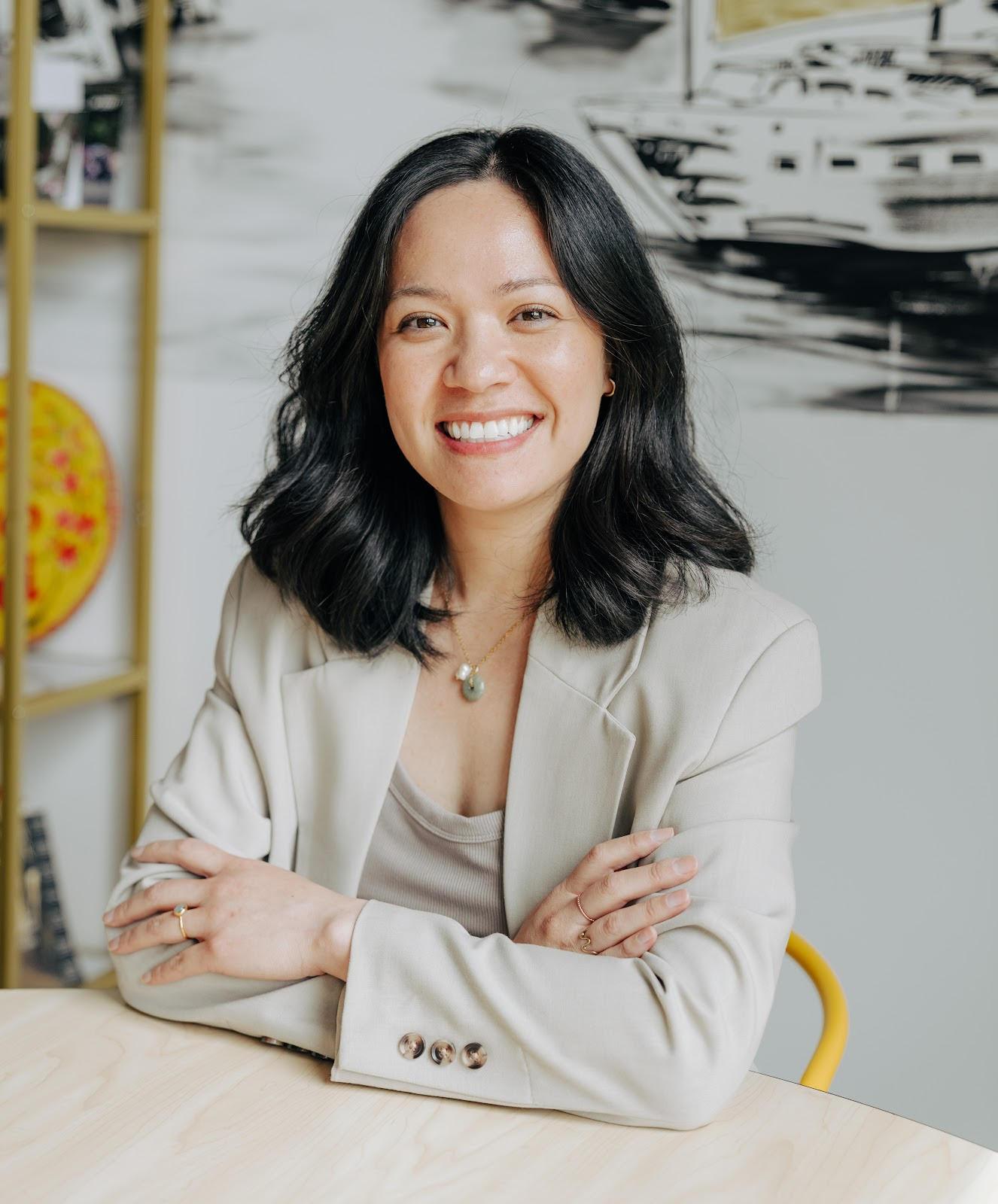
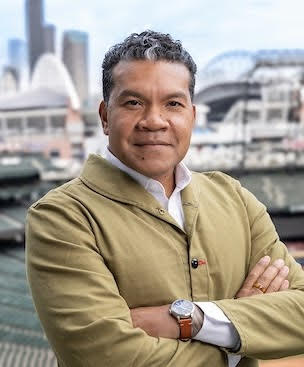
The team brings “extensive knowledge of government, business, labor, housing, and community development to help ensure the new administration is set up for success immediately upon taking office,” a Wilson spokesperson noted in a press release. Wilson pledged to release a full roster of the transition team in coming days. That list was not yet up on the transition webpage at time of post.
While Mayor Bruce Harrell and his allies attempted to brand Wilson, who is a newcomer to elected office but a longtime fixture at City Hall, as inexperienced and lacking in management chops, Wilson countered that the job is about coalition-building and assembling a strong team. The Mayor-elect argued she is well on her way to doing just that.
“I ran for mayor on the vision that we can tackle big challenges, address our affordability crisis, and make our city a great place to live, work, and raise a family. Now it’s time to get to work,” Mayor-Elect Wilson said in a statement. “I’m so grateful to the Transition Director and Co-Chairs who have stepped up to lend their deep expertise in govern.”
The team includes a mix of close political allies and more moderate establishment figures that could represent an olive branch to constituencies that largely backed Harrell. Unlike King County Executive-Elect Girmay Zahilay, Wilson stopped short of putting a big tech executive on her transition leadership team.
McCoy was an early endorser of Wilson. Plus, House Our Neighbors did much to lay the groundwork for Wilson to even jump in the race by fighting and winning a campaign to fund social housing by taxing top salaries at large companies in a special election this February. Facing pressure from the Seattle Metropolitan Chamber of Commerce, Harrell became the face of the opposition campaign, which left him looking out of step with voters when they approved the measure by a decisive 26-point margin.
Within weeks, Wilson rolled out her campaign, and she has pointed to the social housing vote as the tipping point in her decision to run.
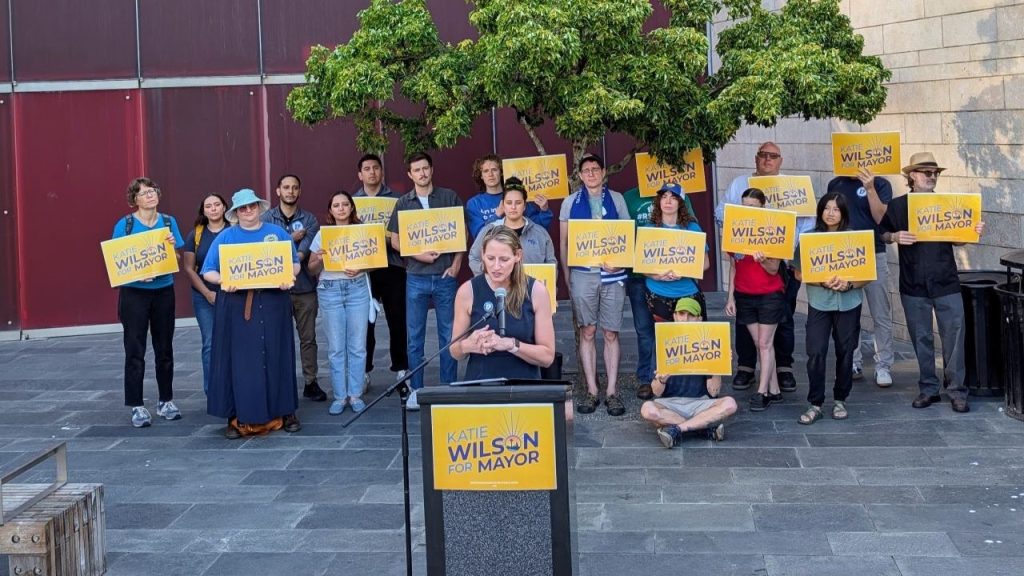
Estevenin’s PROTEC 17 sole endorsed Wilson just before the primary, giving the campaign a boost heading into voting. During the primary, Harrell leveraged his campaign head start (and reportedly the threat of political retribution in his second term) to lock up enough labor endorsements to win the sole nod from MLK County Labor Council. However, MLK Labor switched to a dual endorsement after Wilson’s strong primary performance, when she pulled off an upset nine-point win.
Pham doesn’t appear among Wilson’s public endorsers, but Little Saigon leaders did appear to grow frustrated with the Harrell administration’s lack of progress addressing crime and disorder in the neighborhood, with the 12th Avenue and Jackson Street intersection long a trouble hotspot. Under Harrell, the City periodically attempted emphasis patrols but never landed on a durable solution. Friends of Little Saigon took matters into their own hands and launched the “Phố Đẹp (Beautiful Neighborhood)” initiative to galvanize action to foster long-term change.
Wilson’s victory speech
As the election heads toward certification, Wilson’s margin of victory — sits at 2,033 votes or 0.73 points — is narrow but beyond the recount threshold. Harrell had led by seven points on election night, but lost margin steadily as more progressive-leaning last-minute returns to ballot drop boxes were counted. A recount likely would have delayed Wilson’s transition moves.
After much deliberation and a grueling interview process, I’m pleased to announce that I’ve accepted a new job and will not need any financial support from my parents to cover the high costs of childcare going forward. #AmericanDream #ThisIsYourCity
— Katie Wilson for Seattle (@wilsonforseattle.bsky.social) November 18, 2025 at 8:38 AM
[image or embed]
Wilson declared victory on November 13, a few hours after Mayor Bruce Harrell delivered a lengthy concession speech at city hall. Wilson’s speech was shorter, and she only took a few questions from reporters. She emphasized the need for pragmatic action and bridging divides, while also making it clear the status quo isn’t working and that she is willing to take on powerful interests, if they stand in the way.
“Wealthy interests poured nearly $2 million into a political action committee to prevent my election,” Wilson said. “Because for some people in our city, the status quo is working exactly as intended. It may look like an affordability crisis to working with poor people, but to others, it simply looks like business as usual. They might have the money, but we have the people and the results of this election prove that.”
Clinging to a hopeful message, Wilson laid out an ambitious platform to make the city more affordable for working people. Harrell once quipped that “this is not the time for hope,” but rather experience and his own “proven” leadership.
“The working people of our city are tired,” Wilson continued in her victory speech. “They are ready for something new, something more hopeful and just and equitable, and I am committed to fighting as hard as humanly possible to realize our shared vision. There is an awful lot that I want to accomplish as mayor. I want everyone in this great city of ours to have a roof over their head. I want universal childcare, pre-K through eight summer care. I want world class mass transit. I want great, safe public spaces where kids can run around with abandon.”
Wilson also emphasized her commitment to social housing and building tenant power.
“I want stable, affordable housing for renters. I want social housing. I want much more land and wealth to be owned and stewarded by communities instead of corporations,” Wilson said. “I want a robust economy with thriving small businesses, great living wage jobs and strong rights for workers. I want a city where everyone has the basics of a dignified life, including healthy food, access to health care and supportive communities. I want a city where your health and your life expectancy and your children’s future doesn’t depend on your zip code or your race. I believe that I will be stepping into office with a strong mandate to pursue this vision.”
Seattleites share the vision, Wilson argued, pointing to the clean sweep for progressive candidates in the Seattle election and the fact Harrell’s campaign focused on negative personal attacks rather than disputing her policy vision.
“I believe it is notable that all of that money focused on attacking me, but not my vision or platform,” Wilson added. “And that is because this vision and platform are supported by an overwhelming majority of Seattle residents, as demonstrated by the resounding victories of the other progressive candidates running for office in Seattle this year.”
During the speech, Wilson gave a shout out to her pre-election transition planning team led by Rian Watt and Kate Brunette Kreuzer, who both filled the roles in their personal capacities. Watt is executive director of Economic Opportunity Institute, a local progressive thinktank, and board vice president at The Urbanist. Brunette Kreuzer is director of external affairs at Futurewise, a land use advocacy nonprofit, and previously she served on the board of Transit Riders Union, the nonprofit that Wilson long led before running for office.
Early press
In the first week as the Mayor-elect, Wilson has largely been shying away from interviews and public appearances, with a few exceptions.
Her first interview out of the gate was with CNN’s Erin Burnett, a national anchor based on the east coast. Burnett’s first question was about the significance of the socialist label which Wilson has used — though she has not really emphasized the label in her campaign. The segment also emphasized the similarities between Wilson’s campaign and fellow socialist Zohran Mamdani’s mayoral win in New York City.
Wilson also appeared on the Seattle Nice podcast, which features PubliCola‘s Erica Barnett, KUOW’s David Hyde, and centrist political consultant Sandeep Kaushik. The trio’s efforts to push Wilson to reveal her immediate big moves as mayor largely came up short, as she stayed high-level in her remarks. Asked if she was planning to sack Police Chief Shon Barnes, Wilson declined to share her plans.
However, the 40-minute discussion offered plenty of interesting nuggets at that less granular level. Asked if she embraced the urbanist label and what it meant to her, Wilson noted she used to write for The Urbanist and is fully bought on the concept.
“Certainly, a lot of my policy positions would rightly be called urbanist,” Wilson said. “For me, that means that Seattle’s a big city, and I love living in a big city, and I want Seattle to become a bigger and better city where it’s possible, for example, for someone to live like I do right now, which is raising a child in an apartment. And that means that the city kind of becomes your backyard or your living room. And I think that urban lifestyle is something that we need to promote, and we need to make it possible for more and more people to live in this city without owning a car.”
Likely it won’t come as a surprise: The Urbanist Elections Committee (of which I am a member) endorsed Wilson’s bid.
Doug Trumm is publisher of The Urbanist. An Urbanist writer since 2015, he dreams of pedestrian streets, bus lanes, and a mass-timber building spree to end our housing crisis. He graduated from the Evans School of Public Policy and Governance at the University of Washington in 2019. He lives in Seattle's Fremont neighborhood and loves to explore the city by foot and by bike.



